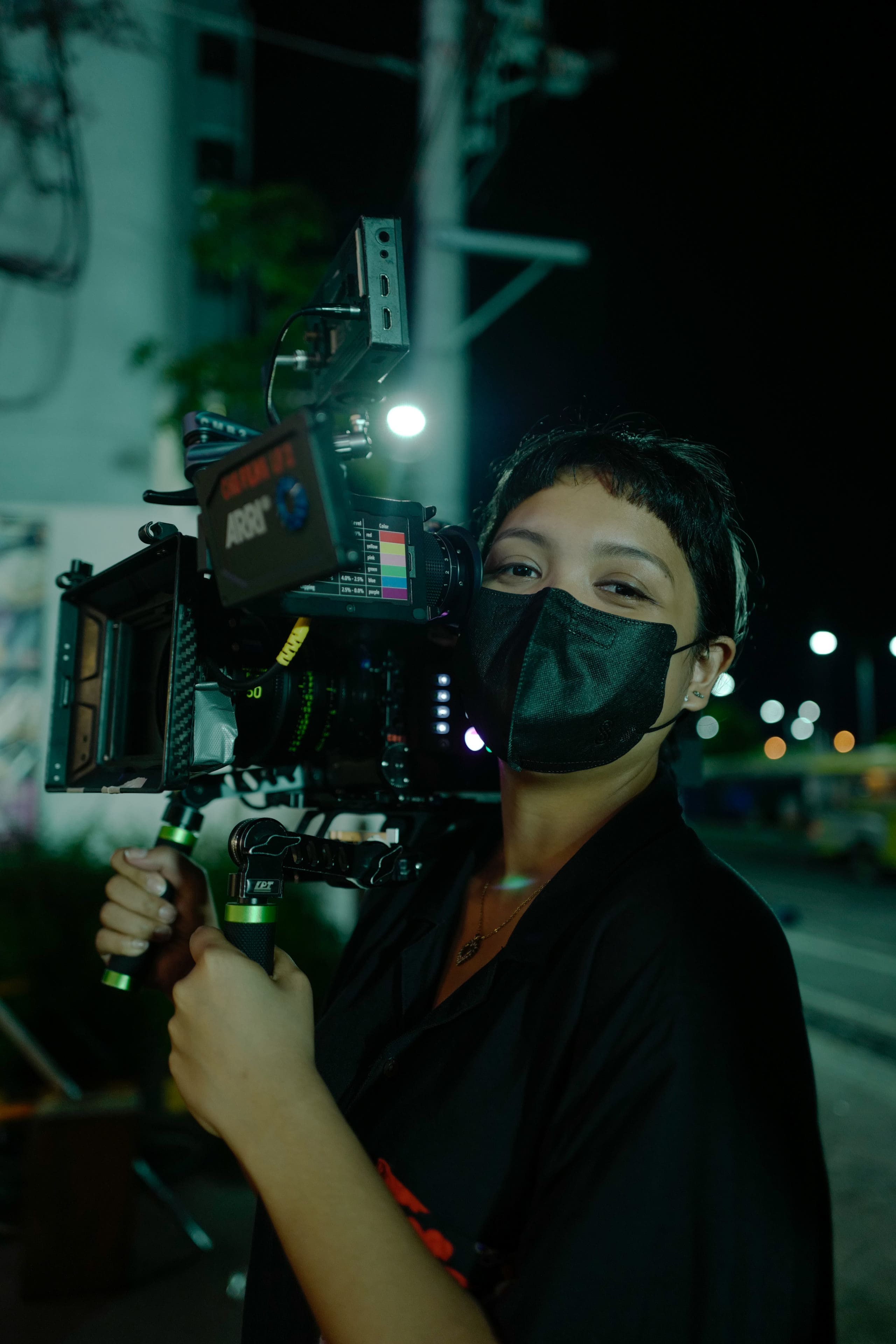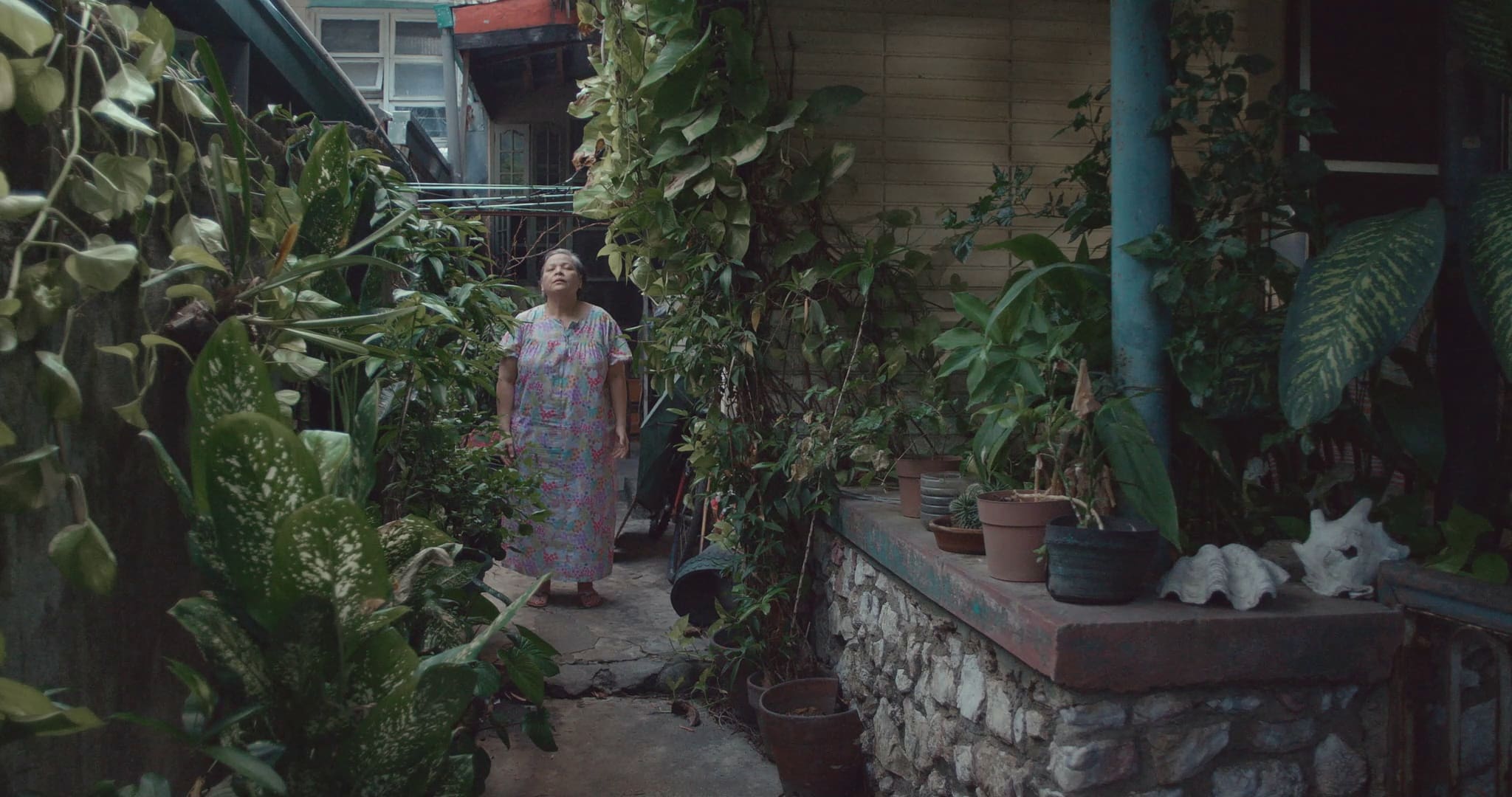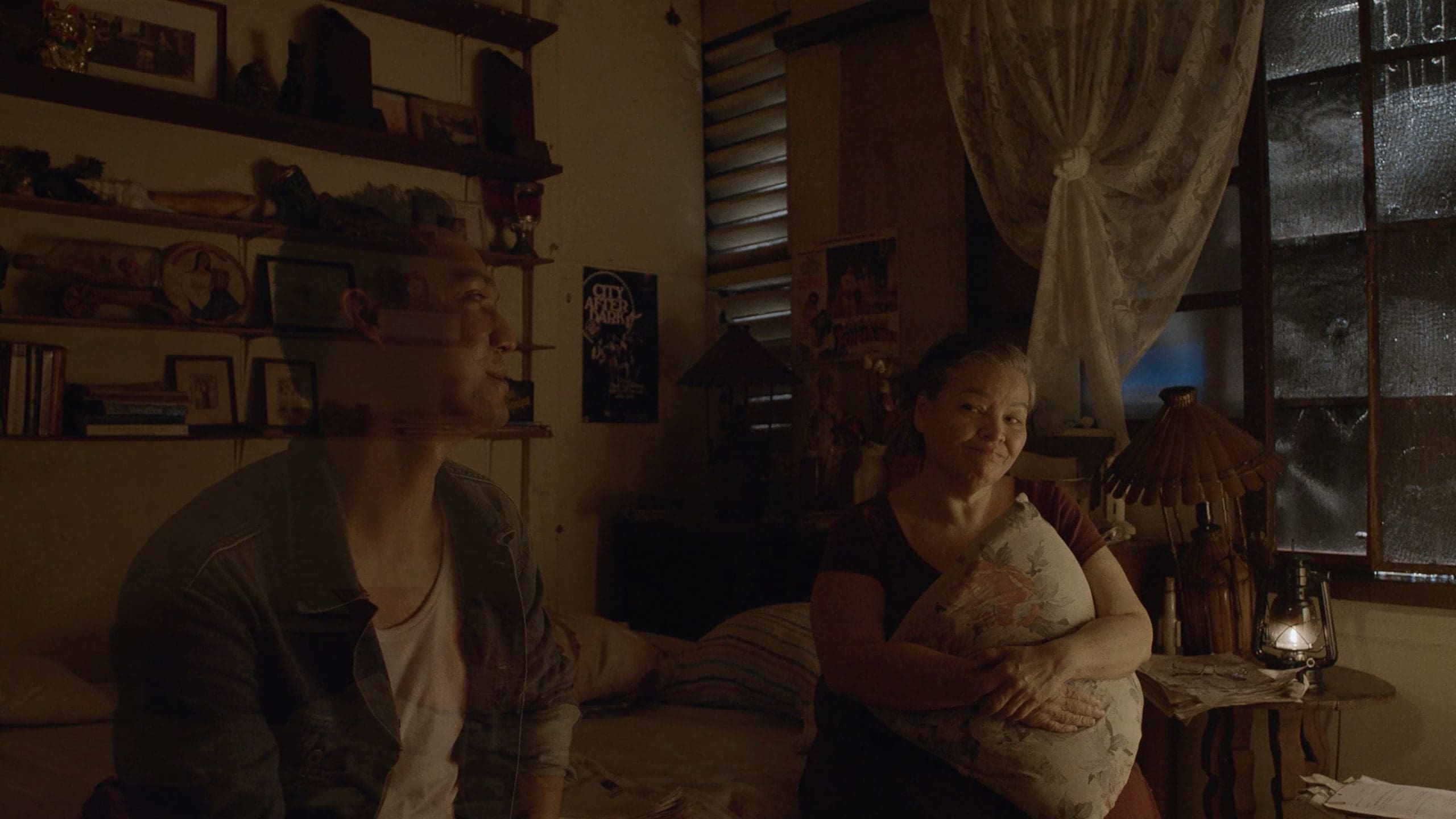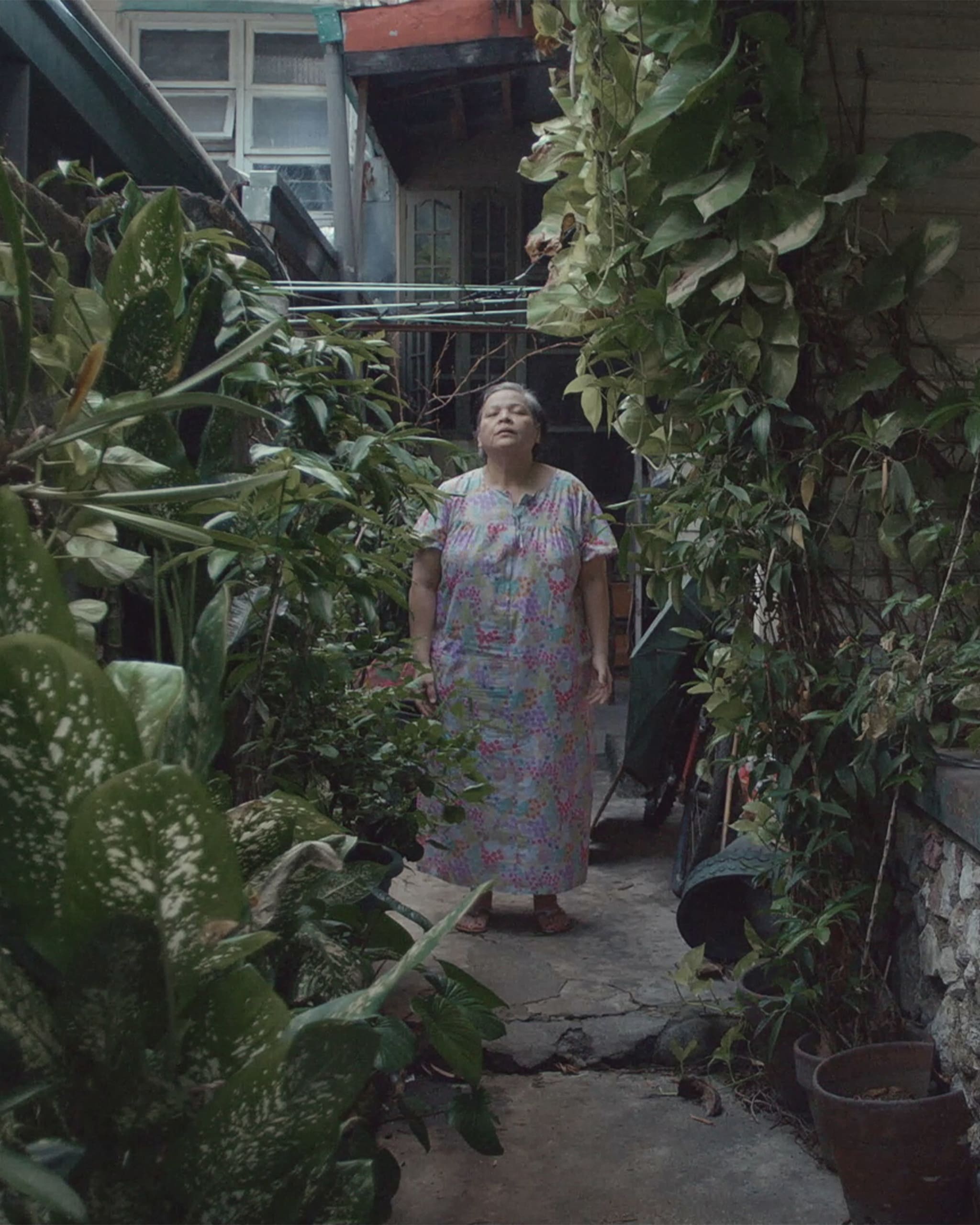Film still of Leonor Will Never Die © Arkeofilms
Hailed by local critics as one of the best movies of the year, Martika Escobar’s Leonor Will Never Die will be screened this Friday, Sept 9, at Greenbelt 3 as a fundraiser for Team Leonor as they bring the film to the Toronto Film Festival this month.
The 30-year-old filmmaker was already earmarked as a talent to watch as early as 2014, when her thesis film Pusong Bato debuted at the Busan International Film Festival and went on to take the best short film prize at Cinemalaya. Her feature film debut was highly anticipated within the film community, but it would take Escobar eight years to finish Leonor due to lack of financing and her own difficulties finishing the script. The film premiered at Sundance last January, where it won the Special Jury Prize for Innovative Spirit—making Escobar the first Filipino feature film director to win an award at the Festival.

Leonor Will Never Die is about a retired action filmmaker (played by Sheila Francisco) who is struggling to finish a long-forgotten screenplay. One day she gets hit on the head by a falling television and goes into a coma. Leonor enters the life of her movie where she lives out her fantasies and finally finds the ending she’s been searching for. Commended for its “playful display of the love for cinema” by festival juror La Frances Hui, the film is also partly autobiographical, revealing how life is like one long film that keeps getting rewritten.

In an interview with film critic Philbert Dy prior to the film’s premiere, Escobar shares how the idea for Leonor came about. “We’re always surrounded by these older, macho men. Why was it that in the hundreds of films in our history, there hasn’t been an action lola?” She asked herself why the tropes, the locations, and the style of speaking in these action films were so familiar, and realized that she had just absorbed these movies growing up, as they were always playing on local television.
She began rewatching these films to understand the pull of the genre. Filipinos, after all, do love action hero figures enough to elect them President. Escobar found the movies to be entertaining, even relatable, despite the violence. “I really liked FPJ,” she says. “He was the one willing to be brought low until the very end. There’s something realistic in his portrayal of a good man.”
Escobar reversed the trope by putting an older woman at the center of the action, one whose life is about to end. She was fascinated by seeing how a person would write their own life as it is happening, in a way questioning the editorial decisions they make, or recognizing how other forces are actually doing the writing.
The filmmaker says she believes in spirits, and has made a ghost one of the characters in Leonor. “The ghost in the movie comes from a family story. My mother and grandmother told a story about my uncle, who passed when he was 25. There was a time when, as a ghost, he sat beside them in bed,” she says. “That’s the image, for me, that started the whole idea of the presence of ghosts. Like, we live among them.”

Her own grandfather passed away when Escobar was finishing the film. “I made this wish that this film would be screened somewhere with a large audience someday. I just have this feeling that he was the one that gave me Sundance. He just knew that’s what I wanted: a large audience.” When she got that long-awaited invitation to Sundance, her grandfather was the first person she thanked.
In the film, the titular character has to come to terms with what she’s done to society with her work, with how violence has come to be normalized. “I do think she has a responsibility as a filmmaker,” Escobar says. “She knows that people are going to accept what she puts out there.”
As to what she believes her own responsibility as a filmmaker would be, she answers, “I just want to contribute some good to people. Make them look at life with more love. That’s always been my driving force.”
